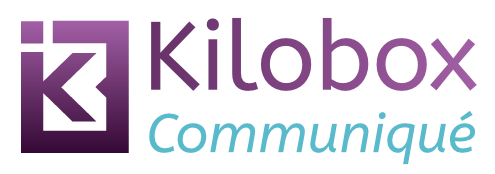1. Why are business writers obsessed with the FAQ format?
I don’t know. Perhaps the FAQ format is so very easy to write; one covers all the concerns comprehensively, and it’s just so easy to think of a question and write the answer. It’s much harder to explain a subject in proper prose, spinning a narrative that moves a person’s understanding forward in a logical progression of facts and examples.
2. Are all FAQs made up of frequently asked questions?

The second area covered are real questions, but have only been asked once. Some of these queries are so random and specific even the most trusting reader will spot them for what they are – the authors agenda.
3. Do random queries help everyone learn more?
Yes, perhaps. A ‘Q&A’ might well be different from an ‘FAQ’ intranet page. Maybe Q&A articles cover in-frequently asked questions and fake questions – queries that the business expects its people to ask, whereas FAQ pages really are ‘Frequently Asked Questions’.
4. Are Q&As written in the same format as FAQs?
Yes, it appears so.
5. What’s the difference between Q&As and FAQs?
Perhaps Q&As are written for the benefit of the author, and are made up of random and logical made-up queries along with random and specific queries the author has been asked over the last year or so. Maybe the author thinks that a nice long Q&A document will reduce the number of emails / phone calls they receive, or at least allow them to say “have you read my Q&A?” in an annoyed voice.
Perhaps FAQ pages really are a list of frequently asked questions; perhaps FAQs truly reflect the concerns of the audience in an authentic fashion.
6. Is the ‘question then answer’ format really really annoying?
Yes; it’s an inefficient manner of reading and learning. Many queries are unrelated to the reader’s role, or the reader may well know a great deal about the topic already. Wading through swathes of long-winded questions and dull answers just to find one shining gem of information is a waste of that person’s time. As a non-newbie, they’d be better off Instant Messaging the more knowledgeable person and asking directly.
7. How long should a Q&A or FAQ document be?
It shouldn’t be a document; it should be a web page so at least people can scan read it quickly. In answer to your frequently asked question, I imagine a FAQ page should be as short as possible, while encompassing all the queries required. Breaking it up into sections and providing in-page hyperlinks (a ‘jump menu’ at top) and lots of ‘Back to top’ links might help.
8. What’s wrong with providing FAQ documents to people?
Word, PDF, PowerPoint files – these things slow a person down when they wish to just get to the content and scan read. If you’re emailing them a document, that document takes up space. If they are downloading / opening the document from the intranet – well – that takes time and can do funny things to old computers (like crash them). A simple clean web page is super-fast to load and the link to which can be emailed around et cetera.
9. Why do people insist on dumping Word documents of FAQs on to our intranet then?
Because it’s easy for them. The author is supremely well practiced at thinking of themselves (even a short life-span among humanity can furnish you with a superbly strong ego) and the impetus is to JFDI – to ‘just get it done’. The author will be satisfied to know that they’re work is ‘online for everyone’ regardless of how convoluted the journey is for a reader to find the document.
Crafting a web page, choosing it’s location on your sprawling intranet and slotting it in to the current navigation takes a little time – the author hasn’t got time, they ‘just want it done’. So, because they know how Word works (they think…) they stick to Word and discount the end-users’ experience.
10. Full articles can hide concerns; wouldn’t you agree that FAQs make good reference materials?
We’re straying into the realms of ‘Knowledge Management’ now, which is a good thing. Educating, elucidating, and enlightening people – that’s what we should be talking about, not whether an FAQ page is really a Q&A page… Knowledge Management is a strong topic with plenty of best practice guidelines – look it up!
So yes, FAQs can make excellent reference materials for a specific audience when combined with overviews, narratives and good communications. FAQs do not replace good communications; FAQs do not work well for ‘everyone’, but rather make good reference materials for a specific audience with a specific skill-set or need. ‘Everyone’ has differing levels of knowledge and need, and so FAQs, alone, can’t address ‘everyone’.
[Wedge]If you would like to share or tweet this article, the short URL is: http://kilobox.net/1251
Photo credit: dullhunk




Wedge, What can I add to this? You have captured all the FAQ/Q&A issues in one post. Elegant and eloquent and in a Q&A format thus proving it can work …just a shame that so often it doesn’t.
Hello from Russia!
Can I quote a post in your blog with the link to you?
Interesting article! You’re a weirdo for writing this and I’m a weirdo for searching out for it! LoL… :-p
I think people are using Q&A and FAQ interchangeably nowadays. They really don’t know or can’t tell the difference and probably use FAQ because it’s just popular, when really the questions AREN’T all that frequently asked. It’s just a question they assume people would ask.
I think Q&A is much more accurate if you are creating a list of questions and answers about your product or service! FAQ is only accurate IF you create a poll or had a questionnaire or customers have addressed the question repeatedly. Otherwise, how would you know?! FAQ is misleading most of time.
Thanks for an interesting read!